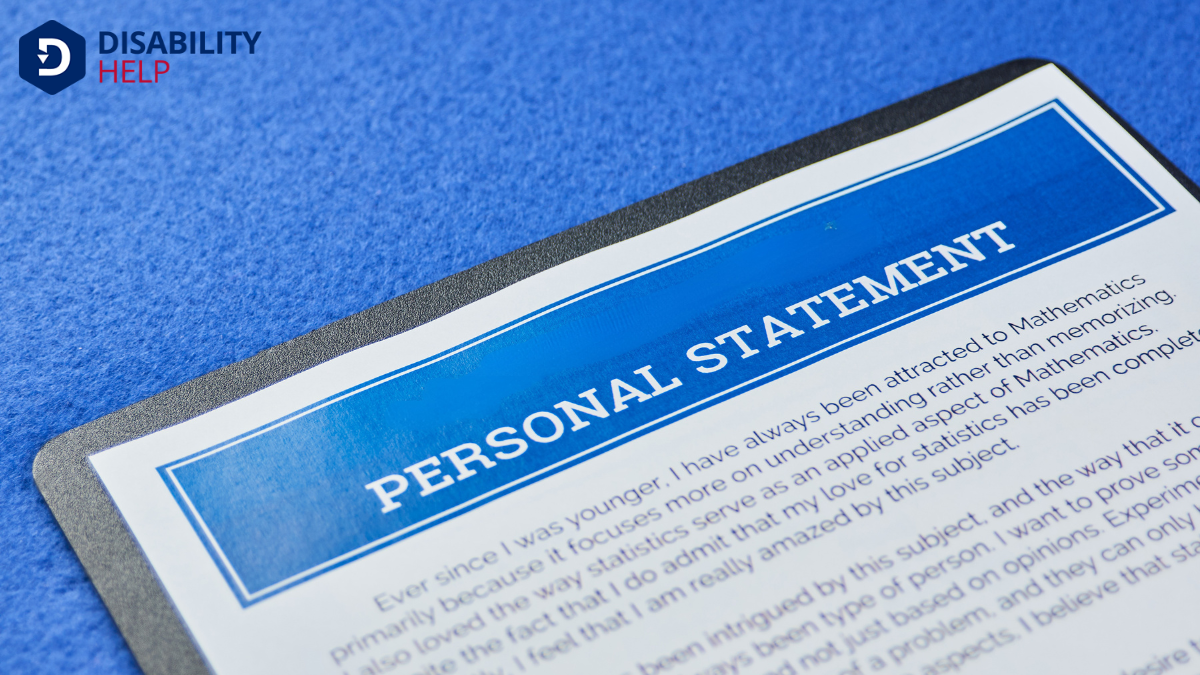You're probably wondering just how competitive disability scholarships can be. With numerous applicants vying for limited funds, the competition is undeniably fierce. Academic performance, personal statements, and financial need all play significant roles in catching the committee's attention. But what truly sets an applicant apart? Discover how you can leverage your unique experiences and strengths to gain that vital edge and increase your chances of success.
Key Takeaways
- Disability scholarships vary in competitiveness depending on the scholarship's specificity and the number of applicants.
- Scholarships targeting common disabilities or popular fields often have higher competition levels.
- Demonstrating both financial need and academic excellence can improve selection chances amidst competition.
- Tailored applications showcasing unique strengths and aligning with scholarship goals are crucial in competitive pools.
- Strong personal statements and recommendations can significantly enhance an applicant's competitive edge.
Understanding the Landscape of Disability Scholarships
Maneuvering the landscape of disability scholarships can seem challenging, but understanding their structure can open doors to numerous opportunities. You’ll find that these scholarships aim to support individuals with varying disabilities, helping them access education and break down financial barriers.
Scholarships may be offered by colleges, private organizations, or government programs, each with unique focus areas and benefits. To navigate effectively, research the specific scholarships available for different disabilities. Some are general, while others target particular conditions or fields of study.
Recognize that these scholarships often embody a commitment to inclusivity, aiming to empower you in your educational journey. By understanding the types of scholarships and their origins, you can strategically pursue those that align with your personal and academic goals.
Key Eligibility Criteria for Applicants

After understanding the diverse landscape of disability scholarships, it's important to focus on the key eligibility criteria for applicants.
First, verify you have a documented disability, as many scholarships require proof through medical records or a certified professional. You might also need to demonstrate enrollment or acceptance in an accredited educational institution.
Academic performance often plays a role, so maintain a competitive GPA. Check age restrictions, as some scholarships target specific age groups or educational levels.
Additionally, some opportunities are tailored to particular disabilities, so align your application with those criteria. Don't forget to reflect on citizenship or residency requirements, as they're essential for eligibility.
Finally, prepare a personal statement that showcases your experiences, goals, and how the scholarship will support your journey.
The Role of Financial Need in Scholarship Selection
Financial need often plays a pivotal role in the selection process for disability scholarships. When applying, you should be aware that selection committees frequently consider your financial situation to guarantee that funds go to those who need them most. They may review your family's income, expenses, and any extraordinary costs related to your disability.
Demonstrating financial need can increase your chances of receiving a scholarship, as organizations endeavor to support students facing economic challenges.
To effectively convey your financial need, gather documents like income statements and medical bills. Clearly articulate how a scholarship will alleviate your financial burdens and enable your educational pursuits.
Navigating the Application Process
While financial need plays a significant role in securing disability scholarships, understanding the application process is equally important. Steering through this process can be intimidating, but breaking it down into manageable steps helps guarantee success.
Start by thoroughly researching each scholarship's requirements and deadlines. Create a checklist to stay organized and on track. Here's what you should focus on:
- Eligibility Criteria: Verify that you meet all the specific requirements before applying.
- Required Documents: Gather transcripts, medical documentation, and recommendation letters early.
- Deadline Awareness: Mark all due dates on your calendar to avoid missing them.
- Online Application Portals: Familiarize yourself with the platforms you'll use to submit applications.
- Follow-Up: After submission, check for confirmation and any additional steps needed.
These steps will streamline your efforts and increase your chances of success.
Crafting a Compelling Personal Statement

Crafting a compelling personal statement is your chance to shine and show the scholarship committee who you are beyond grades and qualifications. Start by reflecting on your personal journey, focusing on experiences that have shaped your identity and resilienceThe ability of individuals with disabilities to cope with and adapt to challenges and adversity..
Highlight specific challenges you've overcome and how these experiences have fueled your passion and determination. Be genuine and honest; authenticity resonates more than trying to fit a mold.
Use vivid, descriptive language to paint a picture of your journey, but keep it concise and focused. Remember, this statement is about showcasing your unique perspective and what you'll bring to the academic community.
Finally, proofread meticulously to guarantee clarity and polish—spelling and grammar errors can distract from your message.
Gathering Strong Letters of Recommendation
Securing strong letters of recommendation is essential for highlighting your strengths and potential in a way that complements your personal statement. To maximize their impact, choose recommenders who know you well and can speak to your abilities and character. When approaching them, be clear about what you need and why it matters.
- Choose well-acquainted recommenders: Select teachers, mentors, or employers who genuinely know your work and dedication.
- Provide context: Share your goals and achievements with them to help tailor their letters.
- Request early: Give them ample time to write a thoughtful, detailed letter.
- Follow up: Politely remind them as deadlines approach.
- Express gratitude: Thank them for their support and time, reinforcing your professionalism and appreciation.
These steps guarantee your letters are impactful.
Highlighting Extracurricular Involvement and Achievements
After securing strong letters of recommendation, it's equally important to highlight your extracurricular involvement and achievements. These experiences show scholarship committees you’re more than just grades. They reveal your passions, leadership skills, and dedication.
When describing your activities, be clear and specific. Mention any clubs, sports, volunteer work, or organizations you’ve participated in. Did you hold a leadership position or win an award? Highlight those too! They demonstrate initiative and responsibility.
Tailor your achievements to match the scholarship’s values or goals, making your application stand out. Remember, quality matters more than quantity. Focus on experiences that showcase your strengths and align with your future aspirations.
Sharing your journey authentically helps reviewers see the unique qualities you bring.
Strategies for Managing Application Deadlines

Although applying for scholarships can be overwhelming, managing your application deadlines effectively is vital to avoid last-minute stress. Start by creating a thorough timeline that includes every deadline. This approach guarantees you don’t miss any important dates and helps you plan your tasks efficiently.
Here are some strategies to keep you on track:
- Break down tasks: Divide your application process into smaller, manageable tasks.
- Set personal deadlines: Aim to complete each task a few days before the actual deadline.
- Use reminders: Leverage calendar apps or planners to set alerts for upcoming deadlines.
- Prioritize tasks: Focus on the most urgent applications first.
- Review regularly: Revisit your timeline and adjust as needed to accommodate changes.
Leveraging Additional Resources and Support
When you're applying for disability scholarships, tapping into additional resources and support can greatly enhance your chances of success.
Start by connecting with disability services at your school. They often have information on scholarships tailored for students like you. Don’t hesitate to reach out to organizations dedicated to disability advocacyThe act of arguing in favor of, supporting, or defending the rights and interests of individuals or ...; they can provide guidance and sometimes even financial support.
Additionally, online communities and forums focused on disability issues can offer valuable insights and tips from others who’ve navigated similar paths.
Consider working with a mentor who understands the scholarship landscape. They can help refine your application and provide encouragement when the process feels overwhelming.
Success Stories: Lessons From Past Scholarship Recipients
Hearing from past scholarship recipients can inspire and guide your own journey.
They've faced challenges and achieved success, offering valuable insights. By learning from their experiences, you can uncover strategies to enhance your application and build confidence.
Here are some lessons shared by successful recipients:
- Persistence pays off: Keep applying, even if you face rejections.
- Highlight unique strengths: Focus on what makes you stand out.
- Seek support: Don’t hesitate to ask mentors for guidance.
- Tailor applications: Customize each application to the scholarship’s focus.
- Stay organized: Keep track of deadlines and required documents.
Conclusion
When you're applying for disability scholarships, remember that standingThe legal right to bring a lawsuit, which requires that the individual bringing the suit has a direc... out is essential. Highlight your unique strengths, experiences, and how you've overcome challenges. A compelling personal statement, strong academic performance, and clear demonstration of financial need will greatly boost your chances. Stay organized to manage deadlines effectively and seek additional resources or support when needed. By learning from past recipients' success stories, you'll gain valuable insights and inspiration to strengthen your application and increase your chances of success.






